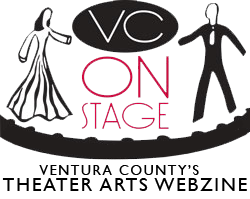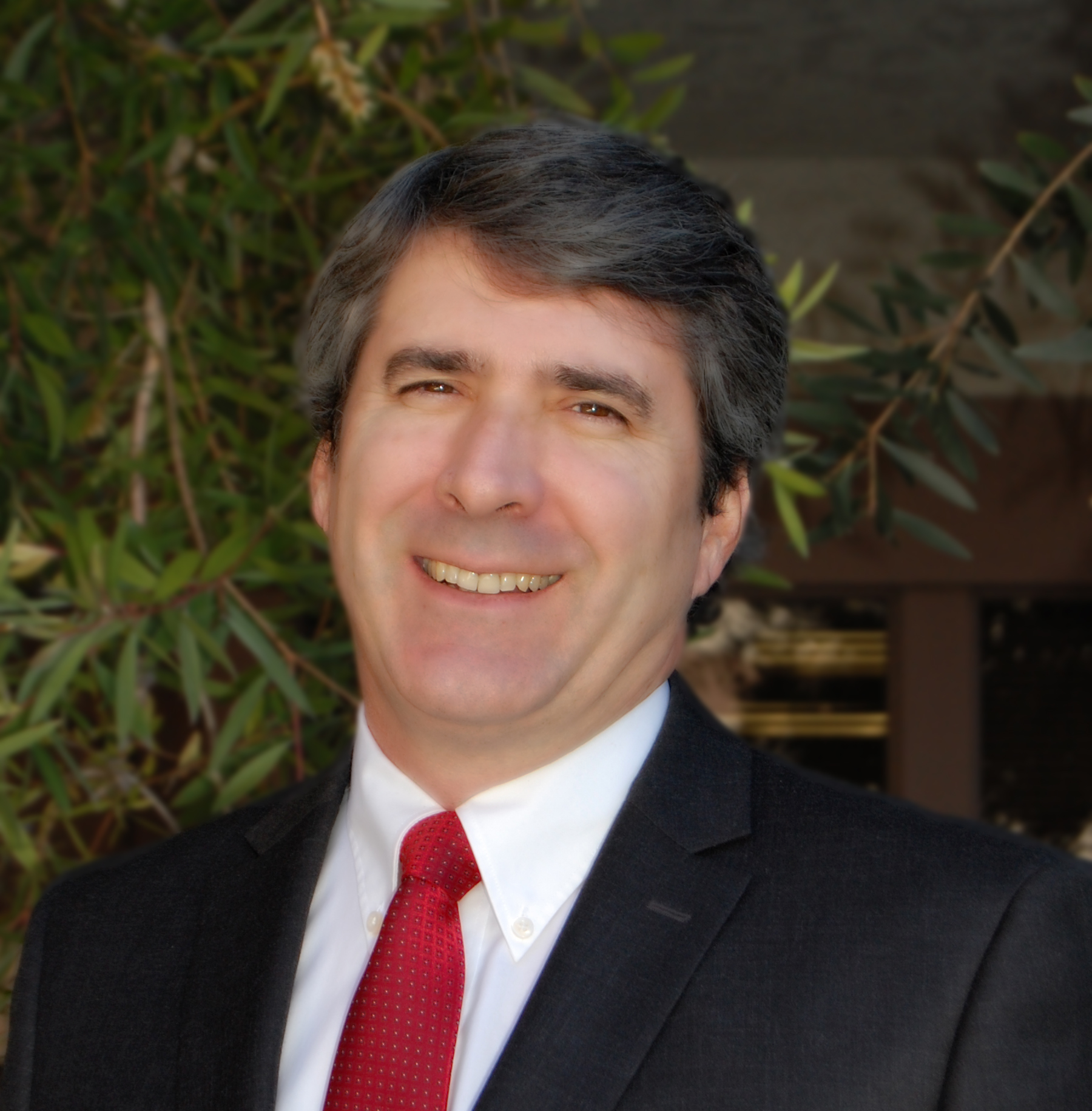BY CARY GINELL
The suddenness in the fortunes of Cabrillo Music Theatre over the past two weeks has left many of its fans’ heads spinning. During that time, there has been more drama behind the scenes at Cabrillo than at its rehearsals for its latest show, Children of Eden, which opens tomorrow evening at the Thousand Oaks Civic Arts Plaza. Our two-part interview with artistic director Lewis Wilkenfeld last week received a flood of comments, all of them supporting Cabrillo and showing appreciation for what the company has brought to the community. But many questions remained about what happened to create all this drama, whether the solutions reached in the past few days are temporary and will another crisis rear its head again in the future. To answer those questions, we spoke with Bart Leininger, incoming chair of Cabrillo’s board of directors, and in this probing interview, we discussed some of these issues.
VCOS: First, tell me about your work with the board and how long you’ve been on it.
BART: I am currently the chair of the board of the directors and started in that position last Monday. We reorganized the leadership of the board slightly at that time, but I’ve been on the board for the past nine months or so.
VCOS: Did you think that changes were necessary in the leadership of the board and how it was functioning?
BART: Not necessarily, because I did feel that the leadership of the board was excellent. We had a vacancy with the resignation of the board chair that we felt we needed to fill so that we’d have all the positions covered. Previous to becoming the board chair, I was the treasurer for the organization and I think it was very important for us to have a new treasurer who could take over those responsibilities, particularly given this period of time when we will be moving forward.
VCOS: Who was the previous board chair?
BART: Richard Storrs.
VCOS: So is he still on the board?
BART: He is not, presently, but I must say that he did an excellent job chairing the board for the last five years. I’m very appreciative of Richard and all that he has done and he continues to support Cabrillo moving forward.
VCOS: Now, walk me through the history of this latest dilemma. Since you were on the board when all of this happened, when did the board start to think that this current season might be Cabrillo’s last?
BART: Are you referring to the 2015-16 season?
VCOS: Yes.
BART: It was months ago. We were reviewing the finances for Cabrillo and were evaluating the 2016-17 year, and we had deliberations about whether or not we could move forward with that season, given our financial condition.
VCOS: Before making the announcement of March 21, what efforts were made to find some way not to have to shut down the 2016-17 season?
BART: That’s a great question. We spent a lot of time evaluating various options to get us through the 2016-17 season, and actually to finish out the current season. We looked at what we could do and how we could change, and in the process of those discussions, we figured that it was more than just a funding issue for moving forward and we came to the conclusion that there were some fundamental business issues that we had within Cabrillo that needed to be addressed. And so we deliberated about those particular business issues prior to our eventual decision that was announced last month.
VCOS: When the announcement came out, it appeared to have come as a thunderbolt from out of the blue, a fait accomplit, if you will. It hit everyone in the community very hard and was delivered with such finality that people felt it was a done deal. In retrospect, do you think the March 21 announcement was made prematurely?
BART: No, because at the time the announcement was made, the board was at a point where they had to make some real commitments about the 2016-17 season, and we knew that it wouldn’t be responsible for us to move forward and make those commitments just to later have to pull the plug on this thing. It was a very serious decision made by the board. Now I want to back up to your earlier question about it coming from out of the blue. I agree with you that it may have been perceived by the public as coming from out of the blue, but when we made our announcement, we didn’t say that Cabrillo was going to go away, we were suspending production of shows for the 2016-17 season while we would retool and consider coming back. But I think that may have been perceived by the public that we were essentially closing Cabrillo.
VCOS: Well, the impression was that there were going to be no more shows produced at the Kavli.
BART: That may have been offered as an opinion or maybe expressed that way, but that was not necessarily off the table. As a matter of fact, in considering moving forward, we determined that we should only have shows in the Kavli and not in the Scherr Forum, just because doing the kind of shows Cabrillo does, it would be very difficult for us to actually cover our costs in putting on shows in that smaller forum.
VCOS: Do you think that the gravity of the announcement helped draw out potential donors who might not have done so had you done something like the “emergency fundraiser” that you did in 2014?
BART: I think it was inadvertent. I think I need to be clear here. During the time period that the board was deliberating over the curtailment of our productions, we did make some inquiries in the public, informally, to see if we had the support moving forward and the sense that the board got was that we weren’t getting a strong signal back. And because we didn’t have a strong signal, we didn’t have the funding available to us to move forward. We felt that was the responsible thing to do, which was to make the announcement.
VCOS: So what changed in the two weeks between the March 21 announcement and the current one?
BART: Two things. First and foremost, we in the board deliberated over the problems that we had because it didn’t do us any good to move forward unless we felt like we could address the fundamental business issues that were affecting us. And I think that as a board, we determined that the issues were not insurmountable, however, they were issues that needed to be addressed in a real way in the coming season. Probably more importantly, we always said in our public statements that if a donor or donors were to come forward, then we would reconsider. Just to make it clear – every person on that board did not want to suspend productions. There was sincere hope within the board that someone or some persons in the community would come forward. So to the question of what changed, we have the framework of a strategy to go forward, but more importantly, we had angels within the community who said, “We want you to continue to do what Cabrillo does, and we’re willing to provide the financial help.”
VCOS: Can you mention any of those names?
BART: I’m not at liberty to mention their names. They asked to be anonymous at this point. They may come forward on their own or maybe at some point we’ll be able to share those names, but at this point, I’ve given them my word that I would not disclose who they are. They really felt strongly that this announcement that we just made is about moving forward as Cabrillo and is not about them. For me, that was a pretty touching thing, that someone would come forward like that, make that kind of gesture to us and ask to keep it anonymous, because they really love Cabrillo.
VCOS: Did the Civic Arts Plaza make any concessions that helped this process?
BART: I would like to express my gratitude to the Civic Arts Plaza for what they’ve done over the course of the last several weeks and months. When we broke the news to them in advance of our public announcement, in terms of what was going on, they were agreeable and flexible with us regarding protecting our dates for the 2016-17 season. And that was so important for us to be able to move forward and make that decision because we could not lose those dates, otherwise, we would not be able to do any of this and it would have been, as you say, a fait accomplit, even if we had the financial backing. If we didn’t have the venue, it would have done us no good.
VCOS: I was under the impression that the deadline for releasing those dates had already passed.
BART: Our agreement with the city allows us to make those deadlines – there are certain deadlines that we have to make notifications to the city, but as you get closer and closer to the date there are certain penalties, so again, we as a board, given our financial condition, didn’t want to enter into something where we would actually have to absorb significant penalties.
VCOS: You mentioned “fundamental issues” that needed addressing. Have those been solved or is that an on-going problem?
BART: They’re an on-going challenge for us. I’ll touch on those briefly. Much of that came out in statements by Lewis and Richard to the media, but let me hit them briefly. One is that we definitely need to refine our efforts to market Cabrillo to the community. We need to do a better job of that and that is one area that we are looking at very closely and working very hard to make sure we get out to the community the message about the shows that we do. We can do a much better job marketing our shows. We also need to change the way in which we do fundraising. I think there is a perception out there that our fundraising is – if we can just get over this hump, we can move forward and that’s that. But we’d like to do is make sure that we are in a full partnership with the community, and that since we are the resident professional theater company in Thousand Oaks, that they see that this is an on-going investment of not only time and talent but also of financial means. I think that when we get into this notion of it being a one-time thing and then we’ll be good going forward is a false premise. The other thing I want to mention is that we are reinvigorating our board and expanding it. We feel that we need to add more community members that love Cabrillo, love what we do, and we need their good ideas to be a better theater company. Finally, and I think this is a more pragmatic issue, we made a decision to go with a three-show season this coming year. As we said in our release to the public, we had decided to cancel Tarzan and it was with great regret that we did that, but I think that from a financial standpoint, we could ill afford to lose money on a show that we knew we would probably lose money on, given the smaller venue of the Scherr Forum. So we decided that the prudent thing to do was to cancel Tarzan and focus our efforts on producing three shows in the Kavli Theater.
VCOS: So did that experiment in the Scherr Forum fail and you won’t be doing any more shows in that venue?
BART: I’m not going to say that we’ll never do something there, but I think that the experiment demonstrated to us that it was very difficult to put a Cabrillo show, a large Broadway type show on in that Forum. It was difficult for us to make money. Now, that’s not to say that we wouldn’t consider it in the future, because there are smaller shows out there that could definitely be done there, so the board is open to doing something like that in the future, but it would need to be one in which we feel it would make more financial sense.
VCOS: In your opinion, should a community theater company have to depend on deep pocketed donors to support it? Isn’t that like walking a tightrope? We know how important Cabrillo is to those who use it, but in relying on a handful of large donors, doesn’t this make Cabrillo’s popularity and subsequent importance to the community at large somewhat artificial and tenuous?
BART: I think you bring up a very good point. You use the word “handful” of donors. I think for us to be successful, that donor base needs to be expanded. There shouldn’t be a reliance on a handful of donors. There should be a reliance on broad donations from the community. Most theater companies rely upon generous donors but I think that is something that we need to build upon, to expand that base so that we really feel like the community is invested in us, like we are invested in the community.
VCOS: Now, the next time there is a crisis, how do you expect people to believe what the board tells us? Even today, there are letters published in the Acorn that are still mourning Cabrillo. You can only have so many “dire crises” before people start thinking that these pronouncements of doom are just a way of flushing out big donors and you aren’t really seriously considering shutting Cabrillo down. How will you be addressing this going forward?
BART: I agree with you. I agree that the public could tire from announcements like this where we’d be saying we’re going to suspend operations and then someone comes forward. I completely understand that point of view. I think that if we are faced with a crisis in the future, I think that we would think long and hard about moving forward. I don’t want to think about that too much because I do want Cabrillo to be successful. We have seen from the letters, the postings, and the articles about how important Cabrillo is to this community and I think we need to turn those words into actions and really move forward. So I’m very sensitive to that, but I just want to make sure that the public understands that we deliberated over these issues for months and months, and it was with great regret that we made that announcement because we had nowhere else to turn. And I am personally touched by the fact that, independently, several donors came forward and provided some capital to get us moving in a way that we can continue to deliver the high quality shows that we’re known for and also so we can continue our outreach programs.
VCOS: Well, speaking for the community, we are glad you guys stuck with it and managed to find a way out. We’re very grateful for this so-called “raising of Lazarus” in bringing Cabrillo back from the dead!
BART: In my opinion, truly, it’s a miracle that we were able to come back. I think that we have an obligation, as a board, to actually make real changes in the way we manage the theater company. If we don’t make changes, then we will have failed. So it’s my hope that the changes we are going to make are real and that we don’t find ourselves in this same position in the future, because we owe it to the community to continue on, given the love and support that we have felt from all of them.






Chris
•8 years ago
Wow great interview.